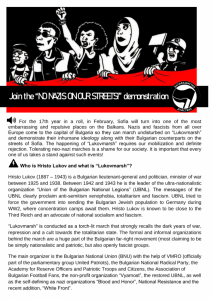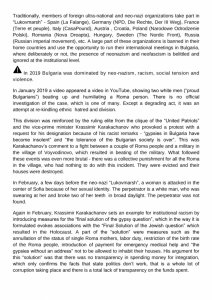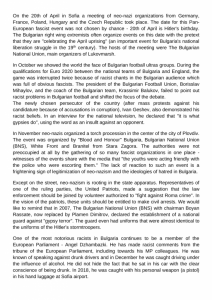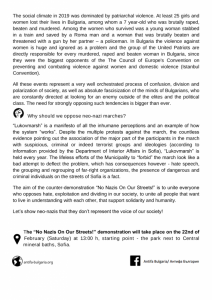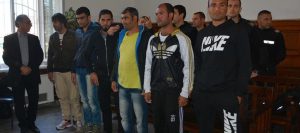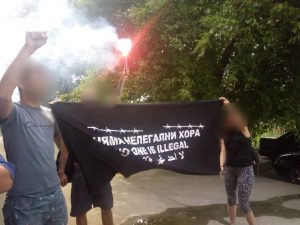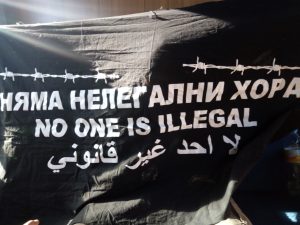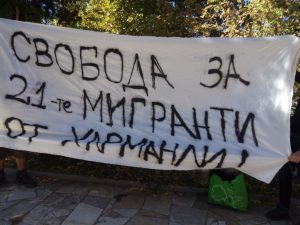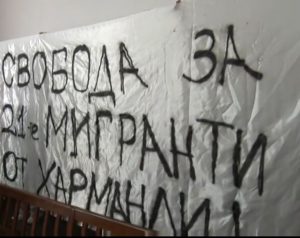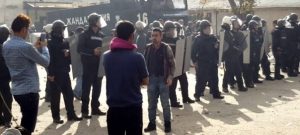[Evros/Türkei/Griechenland] Hunderte Gruppen weltweit unterzeichnen vielsprachigen Aufruf für Frieden, Grundrechte und Recht auf Bewegungsfreiheit für alle Flüchtenden. Wir unterzeichnen den Aufruf unserer türkischen Freund*innen (https://crossbordersolidarity.com/#German):
Fünf Jahre nach der sogenannten „Flüchtlingskrise“ und fast vier Jahre nach dem EU-Türkei-Deal werden wir erneut Zeug*innen der Gewalt, die durch sicherheitsorientierte Migrationspolitik verursacht wird. Seit dem vergangenen Donnerstag (27.02.2020) zogen tausende Menschen in Richtung der türkisch-griechischen Grenze, nachdem angekündigt wurde, dass Migrant*innen, die Europa erreichen wollen, von türkischer Seite nicht länger daran gehindert werden. Diese Ankündigung türkischer Regierungsbeamter erfolgte nach dem Tod von 33 türkischen Soldaten in der Region Idlib. Dort hat die Eskalation des Konflikts die Zahl der zivilen Todesopfer von Tag zu Tag rapide erhöht, offenkundig wurden grundlegende Infrastruktur- und Gesundheitseinrichtungen beschossen. Die türkische Regierung hält ihre Grenzen zu Syrien geschlossen, sieht jedoch keine Schwierigkeit darin, tausende Migrant*innen vor die Türen Europas zu drängen – wo sie in einem Schwebezustand verharren.
Migrant*innen und Asylsuchende aus Syrien, Afghanistan, Pakistan und mehreren afrikanischen Ländern haben die Grenzgebiete Edirne, Çanakkale und İzmir erreicht. Einige wurden mit Bussen von Gemeinden dorthin gebracht, andere mit privaten Taxis oder zu Fuß. In der Region Edirne wurde ihnen von den türkischen Behörden gestattet, ins Grenzgebiet zu gelangen, doch die griechischen Polizeikräfte verhinderten den Grenzübertritt mit Tränengas und Blendgranaten. Gleichzeitig beschränkten die türkischen Behörden den Zugang für Journalist*innen und Reporter*innen. Diejenigen Migrant*innen und Asylsuchenden, die in der Grauzone zwischen den beiden Staaten festsitzen, im starken Regen und mit nur wenig Nahrungsmitteln, riefen nach der Öffnung der Grenzen. Einige derjenigen, die die Landgrenze erreichen, wurden von den Behörden angewiesen, trotz gefährlicher Wetterbedingungen auf den Seeweg zu gehen.
In Griechenland verschlechtert sich die Situation ebenfalls. Die Regierung hat kürzlich ein neues, strengeres und noch unmenschlicheres Asylgesetz verabschiedet, das die Inhaftierung aller neu ankommenden Asylbewerber bei ihrer Ankunft auf griechischem Gebiet vorsieht. In den vergangenen Tagen kam es zu Auseinandersetzungen zwischen Menschen aus Orten auf den Inseln Chios und Lesbos mit der Bereitschaftspolizei, als dort neue Hafteinrichtungen errichtet werden sollten. Unter der Belastung der sogenannten „Flüchtlingskrise“ seit dem EU-Türkei-Deal protestieren die Menschen gegen die Verschlechterung ihrer eigenen Lebensbedingungen und gegen die Lebensbedingungen der dort Asylsuchenden gleichermaßen. Fremdenfeindlichkeit und Rassismus haben jedoch nie aufgehört, Teil des öffentlichen Diskurses zu sein. Als Reaktion auf die jüngsten Ereignisse haben griechische Regierungsbeamte ihrerseits Hass und Angst geschürt, indem sie den Mythos einer Invasion von „Illegalen“ auf Geheiß ihres Nachbarlandes verbreitet haben.
Fremdenfeindlichkeit, Rassismus und ihre Normalisierung müssen überall bekämpft werden, wo sie erscheinen, sei es in der Türkei, in Griechenland oder anderswo. Die Instrumentalisierung des Lebens von Migrant*innen, Asylbewerbern und Geflüchteten, welche auf eine Bedrohung und einen Faustpfand reduziert wurde, muss beendet werden. Sowohl in nationalen Wahlkämpfen, als auch in den Beziehungen zwischen der türkischen Regierung und der EU. Eine Sicherheitspolitik, die tausende bereits Vertriebener in einen Schwebezustand treibt, und die Grenzregime, die einen endlosen Kreislauf der Gewalt gegen Migrant*innen, Asylbewerbern und Geflüchteten mitverursachen, müssen damit aufhören. Was wir fordern, sind Frieden, Grundrechte und die Freiheit aller Menschen, die in Bewegung sind.
Grenzen töten, öffnet die Grenzen!
Stoppt den Krieg gegen Geflüchtete und Migrant*innen!
Transnationale Solidarität gegen Rassismus und Krieg!
Für eine freie Welt ohne Grenzen, Ausbeutung und Exil.

